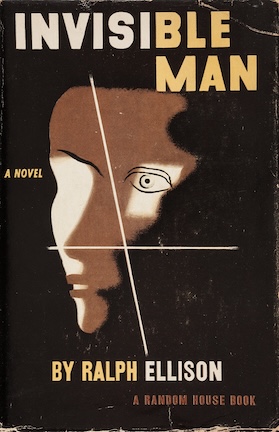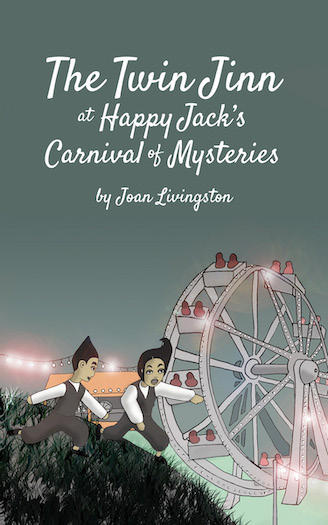Here’s another Hilltown Postcard I found stashed in my computer, in which I wrote about the great Friday nights we had at Liston’s in Worthington when it was owned by Steve and Diane Magargal. Steve also sat for an interview for this story I crafted many years ago. Liston’s, which was bought by a group of locals in 2021 and rebuilt, is still a popular place
It’s 9-something on a Friday night, and the band is into the first set at Liston’s. The tables are filled so Hank and I sit at the bar, a good idea because the band bought larger speakers since the last time we heard them.
Owners Steve and Diane Magargal had the pool table pushed to the side and covered by plywood. Tables and chairs are stacked outside and the Budweiser Beer light with the Patriots insignia is unhooked from the ceiling. The musicians are backed against one wall, but even so, the dance floor is no bigger than a dining room in a split-level ranch.
The band is starting strong with danceable tunes but they have no takers. Billy is feeling extra-good tonight, clowning around with some solo dance moves on the floor and then doing a goofy stunt with a Patriot’s football helmet. His mother, Shirley, who lives in the senior housing down the road, is laughing on the stool beside mine. A man asks me why I’m laughing, too. Billy, I tell him.
When Hank’s ready, we’ll be on the floor nearly every number. He leads. I follow. Our style is sort of swing. Holding hands. Back and forth. Stepping together in some fancy footwork. Nice and loose. Spinning. Twirling. People often remark they like to watch us.
We tried a lesson but that didn’t work. It’s hard to break down what we do naturally. We were also getting ticked off at each other. I’ve only danced with a few other men, including one heart-thumping Wanda Jackson number with a family friend. I’m here to have fun with Hank.
Liston’s dates back to 1933 when it was founded by Fred Liston. The bar used to have gas pumps.
It’s only three miles from our house, a good thing because sometimes it’s easier to get to a bar than to get home from one.
Steve, whose family goes way back in Worthington on both sides, remembers biking here as a boy, he and his buddies going swimming, then stopping for penny candy, Coke in the bottle, and the shuffleboard machine. At the time, Liston’s wasn’t the only bar in town. Frankie’s was in West Worthington, nothing more than a joint that served ice-cold beer. On Saturdays, Steve’s dad and his Uncle Bevo rounded up the neighbors’ garbage to haul to the dump, and when they stopped at Frankie’s, he and other kids played Wiffle ball outside.
Steve says Frankie’s could be a rough place. Hell’s Angels robbed it one time, and the bikers shot the dog. When the place burned to the ground, the owner didn’t bother rebuilding.
Later, when Steve was old enough, it was the Drummers Club on Friday nights after softball. It was Liston’s on Sunday nights after pick-up basketball in Town Hall. The bar didn’t have a large selection.
“But the beer was ice cold and Irene had the TV set on,” he says.
Liston’s wasn’t a late-night place then. Irene, the owner, discouraged it. Two bad accidents involving patrons a few years apart shook her up. Now, Steve and Diane own the place.
Hank and I have moved to a booth. The cold air leaches through the wooden walls although hay bales wrap the outside. The five TVs, including the one above the band, are tuned to a basketball game with the sound off. In the summer, it’s usually a baseball game. Red Sox and Patriots fans rule at Liston’s. (Steve and Diane organize a couple of bus trips to Fenway each summer.) Sometimes it’s NASCAR or a rodeo. One night, hunters were killing deer on the screen.
Admittedly, Liston’s and other watering holes have been an inspiration for my adult fiction, which have a bar in every book.
When Liston’s doesn’t have a band and we still feel like dancing we’ll go elsewhere, usually the Ashfield Lake House, where you dance between two rows of tables, or the Home Club in Hinsdale, where they serve Bud in cans, or to a friendly biker bar in Easthampton. We rarely know a soul even though they’re not that far from Liston’s, our place of preference. Here, we know most everyone. Many have worked with Hank. Others just live in town or one nearby. Some are kids who went to school with our kids but haven’t left town.
I’ve seen two or three generations here at the same time or so many members of one family drinking you’d think they’re having a reunion. One kid, who sipped sodas while his pop drank beer, got a birthday cake on his twenty-first birthday.
There’ll always be a little barroom hanky-panky, but people have to be on good behavior. No swearing. No fighting. No acting up so others feel uncomfortable. Or they get tossed for several months, long enough to realize how much they miss the place. If the mess-up happens in winter Steve tells the offender to see him when the grass is green. If it happens in summer? “I tell them to come see me at Christmas.” But some don’t learn their lesson. Six people in town are permanently banned from Liston’s, and I know all six. Unpredictable sorts.
I get up to use the women’s room. The women’s room is clean and smells good, because women won’t put up with anything funky. The door is located next to the bar, so guys lining up to get drinks have to step aside to let you in. The women’s room is also close to the part of the bar where the band plays, and if they’re loud, it feels as if they’re in there with you.
By the band’s second set, the dancers are on their feet. The dinner crowd is gone, and those who remain are here for the music. The parking lot this time of year is usually packed with snowmobiles but we haven’t had enough snow this winter so the trails in the woods are thin.
The band plays something from the Rolling Stones, then Johnny Cash, and those in a dancing mood are loving it. We’ve found our feet and are on the floor with them. The floorboards are smooth from ground-in dirt and drinks.
The man who sells us firewood, a lean guy who wears a ball cap pulled down on his head, holds his arms tight and does a nice shuffle. So does his buddy, Kyle, who later sings with the band. Another Kyle, a sheep farmer, wraps his big arms around a woman in a tender way like he’s carrying her. Gerry, who is sometimes called Freddy, is jumping around like he’s stomping out brushfires. A young girl who grew up with one of our sons, of age to drink, shows off a trick she can do with her cowboy hat.
Most bands play cover tunes. A few make up their own. Mostly it’s some blues, some country, and a lot of rock and roll. Charles Neville of the Neville Brothers, who lived in a nearby town, has played sax with local bands a couple of times, including a benefit Steve and Diane held for New Orleans musicians displaced by the hurricanes.
Bands can be on one night and flat the next. They get better or worse or call it quits. You know a band’s in trouble when the lead singer goes to the bar for a beer in the middle of a song. Or they’re just too weird.
One night, Steve hired a two-man band as a favor. The guitarist, a small man, dressed like he was the reincarnation of Stevie Ray Vaughn with a satin shirt and a black, flat-brimmed, Billy Jack-style cowboy hat. He tried playing like Stevie while the drummer wailed away with his sticks.
Hard-working guys. But no one left their seats.
You could only watch.




